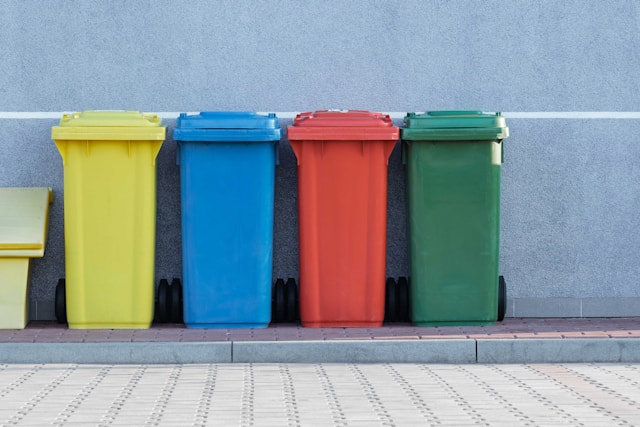The Ultimate Guide to Efficient Waste Management in Washington, DC

Like many other urban areas, Washington, DC faces significant waste management challenges. The city generates millions of tons of waste annually, encompassing everything from household garbage to industrial waste. To tackle this issue effectively, the city has implemented a comprehensive waste management system that includes recycling programs, waste reduction initiatives, and washington dc dumpster rental services. These efforts aim to minimize the amount of waste sent to landfills, promote recycling, and ensure the proper disposal of hazardous materials.
Knowing the Waste Management System
Waste management in Washington, DC, is an effort that brings together the government, private companies, and individuals. The Department of Public Works (DPW) is the leading institution responsible for collecting, recycling, and disposing of garbage within the city. They have regular household rubbish pick-up schedules, including recycling and yard waste disposal services. Furthermore, they provide specialized programs for large item bulk collection, electronic gadget disposal, and hazardous materials handling.
Private firms have also invested heavily in this sector within the DC metro area alone. Many enterprises or even significant residential buildings hire private garbage collection companies to manage trash removal requirements effectively. These organizations offer services like rental dumpsters, construction debris hauling, and recyclable materials transportation, among others, to ensure that all kinds of waste are correctly handled.
Importance of Recycle
Recycling forms an integral part of Washington, DC’s waste management strategy. The city has adopted single-stream recycling, where residents can combine paper products with cardboard boxes plus plastics, including glass bottles and metal cans, into one container for collection purposes. This makes recycling easier, and thus, more people get involved in the process.
DPW runs an extensive recycling program that comprises weekly curbside pick-up, drop-off points for recyclables, and public enlightenment campaigns aimed at sensitizing people to the significance of recycling. The inhabitants are advised to recycle as much as possible to cut down on landfill volumes and save natural resources.
Waste Reduction Initiatives
One of the easiest ways to handle waste is to avoid creating it in the first place in Washington, DC. The city implemented several programs to promote less garbage release, such as giving out reusable bags for free and teaching people. Composting organic matter, including food leftovers and garden refuse, can cut down on what goes into landfills while producing nutrient-rich materials ideal for plant growth.
Residents and businesses should also reduce trash by using refillable containers, buying items with minor packaging, and giving away things they do not need to charity instead of throwing them out. When people throw away less stuff, the city will cause less environmental harm, creating an environment where everyone can thrive.
Proper Disposal of Hazardous Waste
It is important to manage hazardous waste properly within Washington, DC’s solid management framework. If mishandled, dangerous substances such as electronics, paints, or batteries could pose health threats or environmental pollution. DPW ensures the safe handling and transport of these materials through specialized pick-up points plus designated collection events so that no harm befalls anyone.
Local inhabitants are encouraged to take full advantage of these initiatives when disposing of hazardous materials, helping to prevent soil and water contamination through responsible commercial waste management practices. Moreover, firms producing such kinds of waste must adhere strictly to guidelines set out for their secure disposal.
The Advantages of Leasing Dumpster Services
Leasing dumpster services become essential for large-scale waste disposals such as construction sites or general clean-ups. Businesses providing Washington DC dumpster rentals offer containers of different sizes capable of holding various kinds of refuse, ranging from domestic junk to building materials and waste. These facilities help simplify the waste disposal process, thereby making it possible to handle huge amounts of garbage efficiently.
Dumpster hiring entities are generally responsible for delivering and collecting the bins from clients’ premises and disposing of their contents as per the set regulations on waste management within a locality. Besides promoting environmental conservation, this saves time and energy for an individual or company that would have otherwise been used up during transportation and dumping exercises.
Conclusion
For the cleanliness and sustainable development of Washington, DC, it is essential to develop effective ways of managing waste. Residents should, therefore, know how the city’s waste system works, participate in recycling programs, adopt measures to reduce garbage generation, and utilize dumpster rental.
Government institutions alone can only achieve this goal by engaging private enterprises and members of the public who play a critical role in ensuring that towns are kept clean and safe for habitation. More still needs to be done in education so that people can understand why they must be actively involved in managing waste well. Through continuous learning and active involvement, it will be possible for Washington DC to become a model city in proper waste management and in teaching others what they should do.
